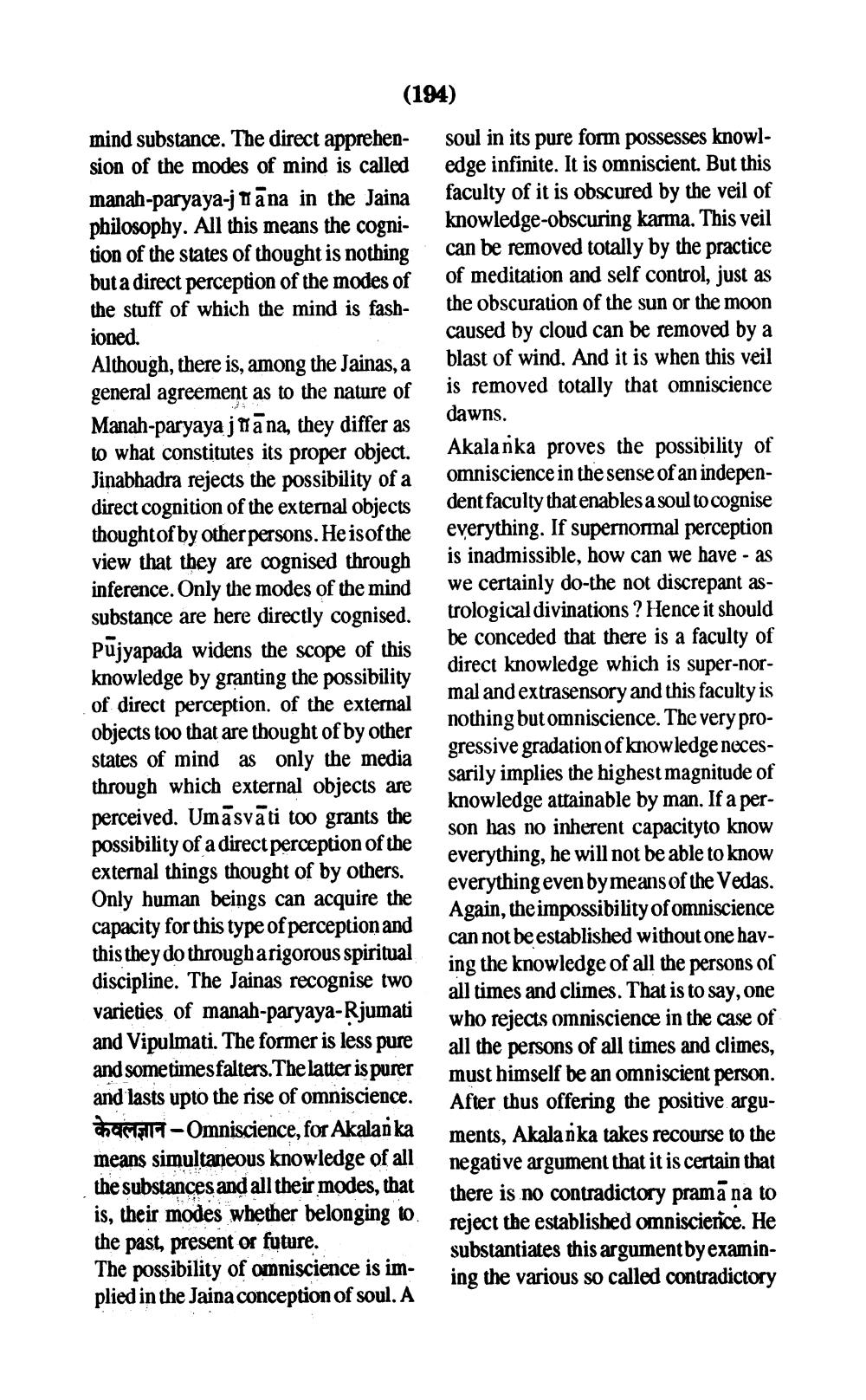________________
(194)
mind substance. The direct apprehen- sion of the modes of mind is called manah-paryaya-j wāna in the Jaina philosophy. All this means the cogni- tion of the states of thought is nothing buta direct perception of the modes of the stuff of which the mind is fashioned. Although, there is, among the Jainas, a general agreement as to the nature of Manah-paryaya jñāna, they differ as to what constitutes its proper object. Jinabhadra rejects the possibility of a direct cognition of the external objects thoughtof by other persons. He isof the view that they are cognised through inference. Only the modes of the mind substance are here directly cognised. Pūjyapada widens the scope of this knowledge by granting the possibility of direct perception of the external objects too that are thought of by other states of mind as only the media through which external objects are perceived. Umāsvāti too grants the possibility of a direct perception of the external things thought of by others. Only human beings can acquire the capacity for this type of perception and this they do through a rigorous spiritual discipline. The Jainas recognise two varieties of manah-paryaya-Rjumati and Vipulmati. The former is less pure and sometimesfalters. The latter is purer and lasts upto the rise of omniscience. dari - Omniscience, for Akalanka means simultaneous knowledge of all the substances and all their modes, that is, their modes whether belonging to the past, present or future. The possibility of omniscience is implied in the Jaina conception of soul. A
soul in its pure form possesses knowledge infinite. It is omniscient. But this faculty of it is obscured by the veil of knowledge-obscuring karma. This veil can be removed totally by the practice of meditation and self control, just as the obscuration of the sun or the moon caused by cloud can be removed by a blast of wind. And it is when this veil is removed totally that omniscience dawns. Akalanka proves the possibility of omniscience in the sense of an independent faculty that enables a soul to cognise everything. If supernormal perception is inadmissible, how can we have - as we certainly do-the not discrepant astrological divinations? Hence it should be conceded that there is a faculty of direct knowledge which is super-normal and extrasensory and this faculty is nothing but omniscience. The very progressive gradation of knowledge necessarily implies the highest magnitude of knowledge attainable by man. If a person has no inherent capacityto know everything, he will not be able to know everything even by means of the Vedas. Again, the impossibility of omniscience can not be established without one having the knowledge of all the persons of all times and climes. That is to say, one who rejects omniscience in the case of all the persons of all times and climes, must himself be an omniscient person. After thus offering the positive arguments. Akalanka takes recourse to the negative argument that it is certain that there is no contradictory prama na to reject the established omniscierice. He substantiates this argument by examining the various so called contradictory




